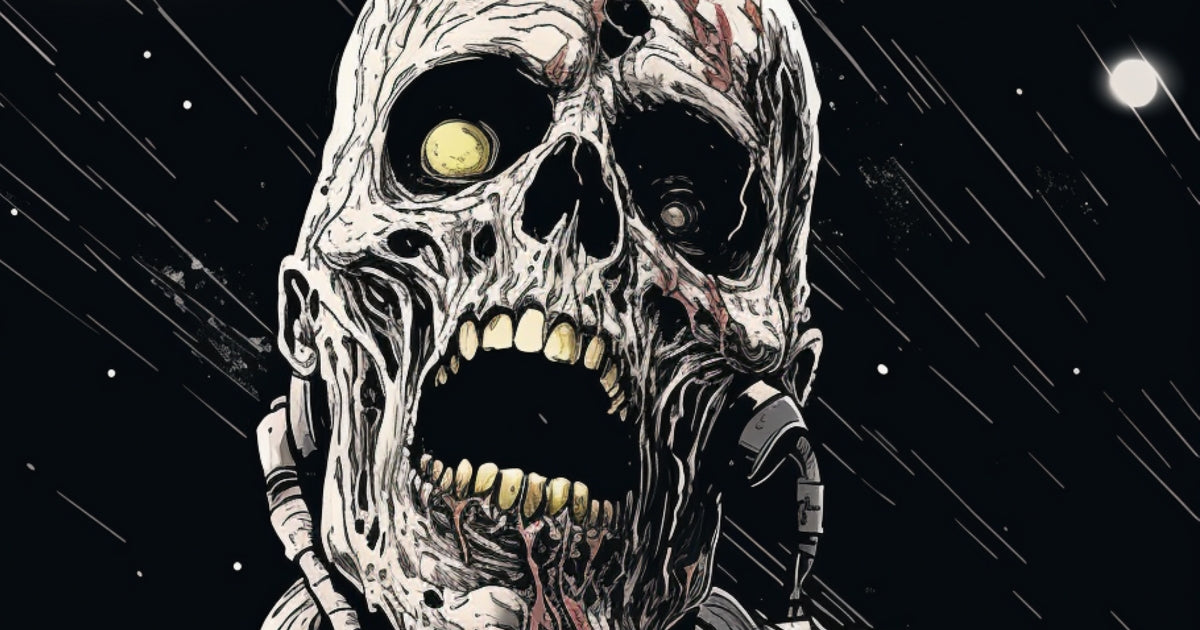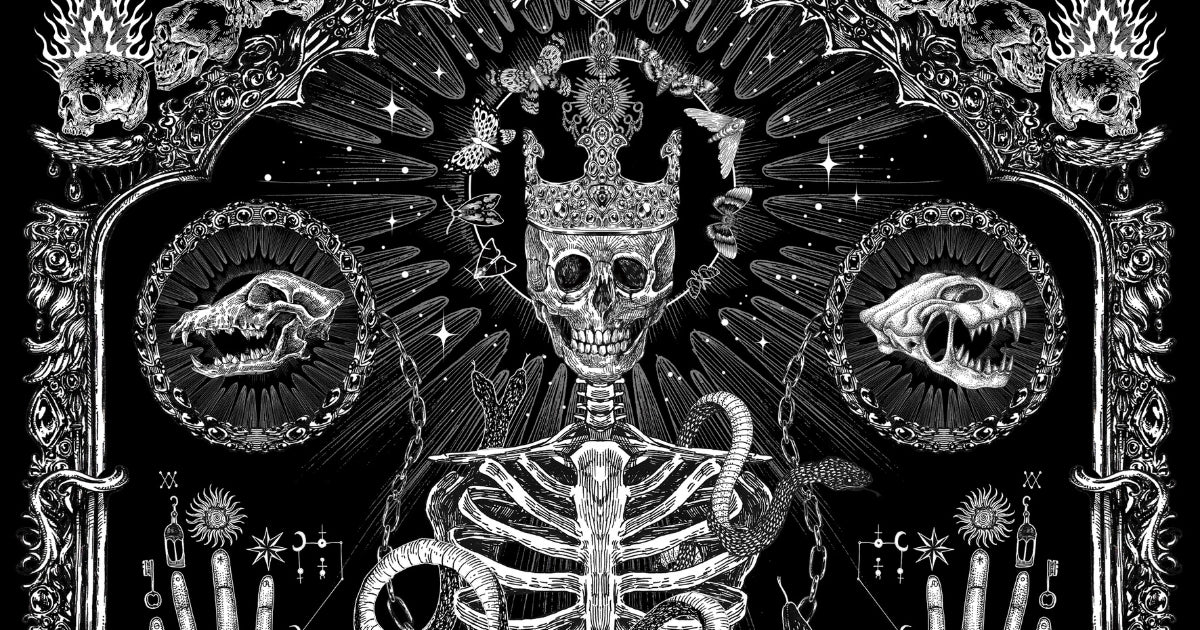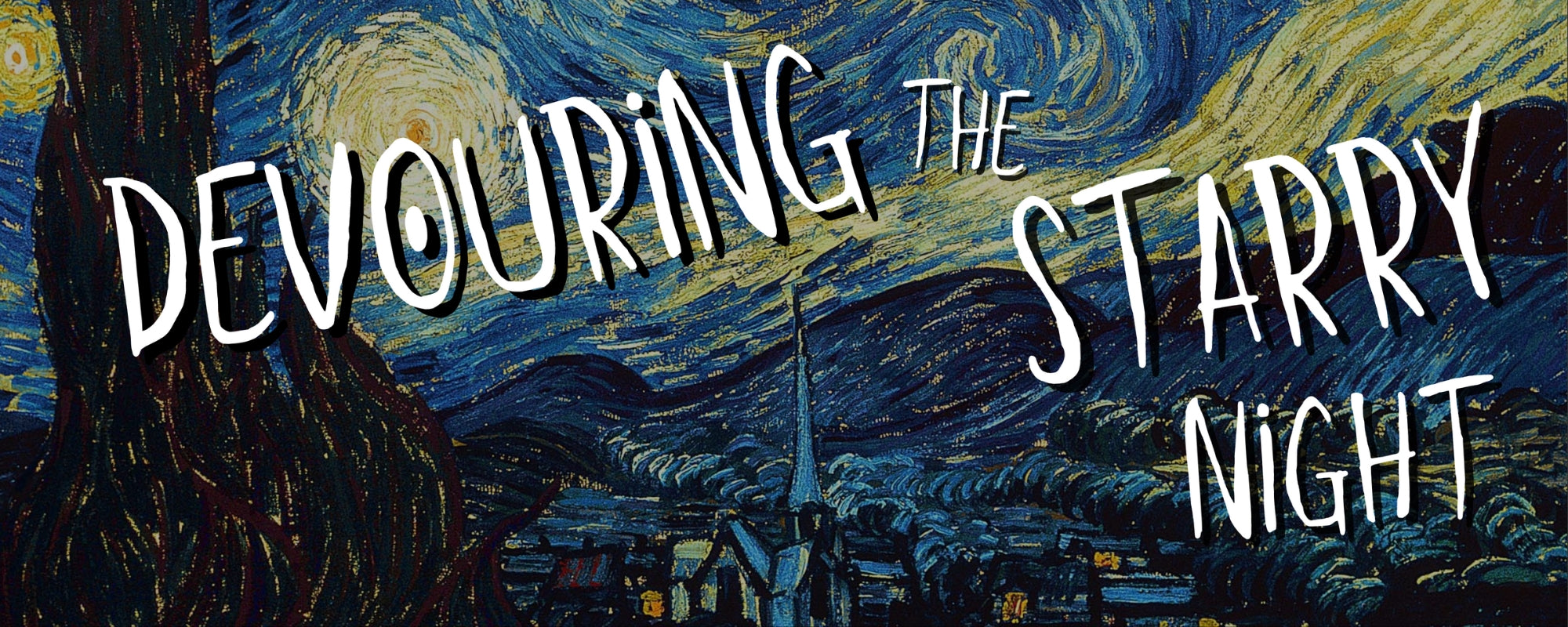
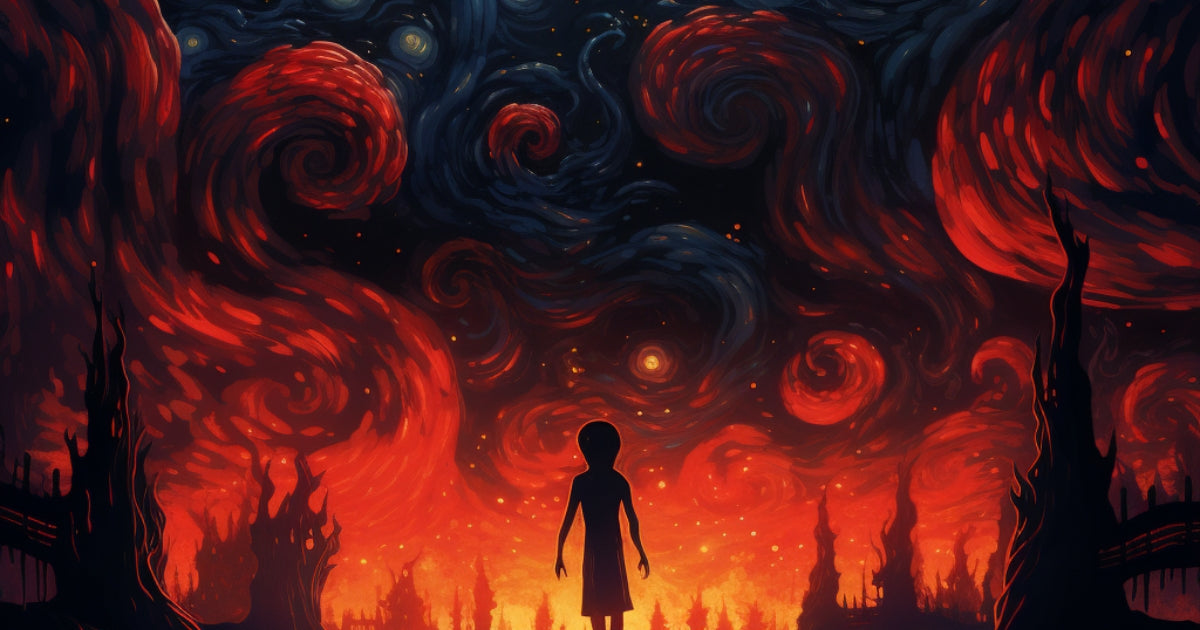
Devouring the Starry Night
By Angela Liu
Like every night before, I begin my evening trek through the dark, dirt roads toward the spired white chapel.
The city is empty. Not a single person or creature. There’s only the slap of water against the pier in the distance, boats tied to the shore, ownerless. I scour the ground on all fours, searching for insects or rats, but the streets show no signs of them.
Then, one star, larger than all the others, begins to spin in the north, luminously close, a whirlpool of astral light. It grows larger and larger until its heat burns my face, until I am breathing the boiling steam of it. I open my mouth to scream, my body vaporizing.
Then I’m back in the Space, devouring again.
In the Space, there are no windows, only a moving wall for observation, a kind of perpetual screen. People come and go in there. Seasons change in distant windows, warm wooden walls of bedrooms turn to steel cabins, shoe boxes transform into boxes of cracked syringes, lights flicker on and off, but I am always the same. The Space is a vacuous shadow within a shadow—a dark canvas where I exist, where I consume. Where I am observed, and where I observe.
In the Space, there is always blood in my mouth. My hands tear strips of flesh, cracking and shaking the marrow out of bones, the sharp memory of heat against my face. The clock on the wall hasn’t moved in years, but there is no need for time. All I do is devour and wait.
Every night, the other three walls slide open, revealing a city of stars and the undulating blue hills beyond it. Barefoot and anxious, I wander the city, its open bookstores and cafes, its churches and blooming courtyards, looking for someone, anyone. Every night, I find no one.
🎨
The girl likes to play with wooden trains and sheets of colored paper. She stares at the subway map on her wall the way I look at the blue hills at night—like a wounded bird remembering fish-filled lakes it can no longer reach.
No one ever comes into the room, except for the nervous woman who brings the girl cut fruits and studies the location of all her toys. She washes her hands constantly in the small sink near the door and reminds the girl to do the same. There’s also the bespectacled man with a brown mole the size of a small roach on his chin, who comes less frequently and never for long. He presses metal instruments to the girl’s forehead and chest, examines her eyes with thin beams of light, and asks questions like “Do you see one or two shadows on the ceiling?”
“None today, Papa,” the girl answers, her eyes darting around the room as he holds her eyelids open.
“Good. Very good,” he says, always glancing in my direction before he leaves.
🎨
Sometimes I remember the original man, my creator. The fiery color of his hair, the protruding arch of his brow, his sunken green eyes skittering from wall to floor, unsure where to look. I remember the olive trees outside his window, the dirt roads, and swaying tufts of lavender washed in warm light. He liked to keep flowers in his room, the fat heads of dead sunflowers, their necks bowing within hours of him treading soil into the room. There was always a scattering of dried seeds and browning petals on his vanity drawer.
On certain weekends, as I watched him leave the room, a straw hat perched on his head, the stupid lopsided grin on his face, I felt something close to jealousy. Who was he meeting? What did the sun feel like on bare skin? Who would touch that bare skin? I wondered if I could be more beast-like, reduce my thoughts into a single guttural scream, perhaps that would make everything easier. I could grow claws, a slick back of shiny scales, muscled wings to fly over the city of stars, to tear that empty chapel down to rubble. Maybe I could make the man hear me—pull him into my Space, ask him why he brought me here, curse him, possess him, devour him. It wouldn’t be so hard.
“You want to be useful too, don’t you?” he once asked in the dark, his silhouette against the greenish-black swath of swaying olive trees in the window.
“Even a rusted wheel, discarded and forgotten in the field, dreams of being useful again,” I answered, not sure if he was speaking to me or to himself.
🎨
Sometimes, I dream of the man’s sunflowers. Their stems curled around my arms and neck, my feet planted in the damp soil, unable to feel my toes. I’m one of them. Taller than any other flower in existence. I reach for the stars, but I have no arms, no mouth, only eyes, hundreds of them.
The girl’s crying wakes me from these dreams.
Her mother smiles more in the dark, her teeth glinting like moonstones in the shadows. She doesn’t offer fruit, only less sweet things, sinister things. She tells the girl that being useful is important. That their lives are wonderful, peaceful, useful now, and doesn’t she want to make sure that continues? Doesn’t she want to make people happy? Doesn’t she want to make her mother and father happy?
Please.
In the dark, I feel nostalgic for the original man. The way he often pleaded in the dark too. Those times, I could almost reach out, almost touch him through the heated breath of his words, his desperation to connect.
Please.
The girl is still crying after the woman leaves.
🎨
After the original man, there were other rooms and strangers, but I remember the old woman best. She lived by a metro station, the roar of the train pummeling down the tracks just outside her window, shaking the glass.
She didn’t cry or ask questions at night, not like the original man. Instead, she complained to the plants on her windowsill, to the pigeons that flocked to the plate of seeds and old bread she left by the open window, her floral curtains torn from their daily feeding frenzy. Sometimes she sang songs I didn’t understand, her whole body swaying to the music only she could hear. I envied her, too.
Every morning, she had a cup of tea and a napkin covered in small pills. A younger man arrived every Sunday with a box of mandarin oranges and forms for her to fill out. He called the old woman “grandmother,” but I did not know if this was an affectation or a fact. He had the lidded eyes of someone who never really saw anyone completely. Whenever the old woman asked him to stay for dinner, he’d come close enough to me that I could see the way his lips curled down, jaw grinding.
“I got client meetings,” he’d mumble, snorting. “But I’ll make sure everything’s taken care of, okay? Just make sure you sign all the papers. I put Post-it notes on the places they need your signature.” He clicked his tongue, annoyed. “Are you listening?”
The old woman returned from the kitchen with a tray of colorful snacks. “Keisuke, you used to love youkan when you were a boy—” she reached down and picked up a translucent purple square with a shaky hand. A stray pigeon fluttered in through the window, pecking at the empty plate.
The man looked at the bird and then back at the wet purple block, as if the old woman had offered him a squirming scorpion to eat.
“I never liked youkan,” he said, his jaw grinding again. “As I was saying, don’t forget to fill out the forms.”
🎨
I never understood the original man. He didn’t want to live. But he desperately wanted to want to live.
“The only way you can ever really understand another person is if a piece of them becomes a part of you forever,” he said, slicing off his own ear. Blood spilled to the floor, staining the scuffed wooden boards. He dropped the razor onto the table and stepped closer, holding the severed appendage, the strangely shaped thing like a wet oyster shucked from a gleaming shell. “Take it. Please. It’s yours.” He reached through the moving wall like the hand of a god, dropping it into my hands. It was the first and only time someone breached my Space. The first time someone had given me anything.
I pressed the ear against my lips, the smell floral and briny, and swallowed it whole.
🎨
“What are you?” the girl asks one day, holding a wooden silver train with no windows. Her desk is covered in the paper animals and people she cuts out and tapes to the wall for company. She is speaking directly to me. Her eyes are open wide, not exactly frightened, or at least not sure if she should be. The bespectacled man hasn’t come by in several weeks.
She is the first to speak to me since the original man.
“I don’t know,” I answer, testing my voice.
She does not wander or turn away like I expect, her other wooden trains perched still on their tracks behind her.
“Why are you here?” she asks next.
“I don’t know.”
“What do you know?” she frowns.
“The stars. The night city and hills. The white chapel,” I answer. “The sound of the bells.” My voice has slowly taken a shape, a sturdiness in her ears.
She purses her lips, considering my expertise. “Do you like trains?” she asks.
“I don’t know. I’ve only ridden on one once before,” I answer.
She nods slowly, with almost pity. “Me too.” Then her eyes widen. “Would you like to ride one again?”
I glance at the plastic tracks behind her, trying to remember the view out the train window, the posters of people with perfect teeth on the walls, the crowd of bodies in colorful clothing.
“I think so,” I answer finally.
“One of my books said that if you board the right train, you’ll end up in a world of stars,” the girl says, starting to grin. “You can become one of the stars then. Burning brightly for billions of years. Entire planets circling you, starved for your warmth.”
The door opens. The girl’s mother brings in a bowl of orange slices.
“Papa will be home soon,” the woman says, picking up some of the trains and tossing them into a plastic box.
The girl is still looking at me, but her eyes now have the lidded, vacant look of the people who often visited Keisuke’s house.
“Will he be bringing new toys?” she asks.
🎨
Sometimes the city is a galaxy of light so bright it burns. I stumble toward it, my feet sizzling against the dirt and then the empty cobblestone paths, the pain itself a kind of nourishment.
Today I get just close enough to the chapel to feel the vibrations of its bells in my throat. It judders my bones.
By the time my body settles, the streetlamps have been snuffed out, along with the lights in the houses. I’m alone under the stars. Everything has stopped moving. My hands are wet, dripping. The original man is lying next to me, his mouth open, my hands buried inside his chest.
Go ahead, he says, his eyes two swirling stars, go deeper.
I open my mouth to scream, but I’m back in my Space, devouring again.
🎨
After the old woman, I remember taking the train. The line of kids in matching yellow hats in the seat across from me. A river outside the long window, gray water reflecting gray sky. I didn’t know where we were going, but it was thrilling to be going somewhere new at such a fast speed.
Keisuke’s house was full of red things. Red lamps, red dishes, red carpets, and red portraits of open-mouthed strangers on the wall. There were dried palettes and stained bottles of paint on the shelves. He liked to listen to music while he worked. The syncopated piano chords, the velvety vocals of a woman crooning through the spiral grooves of a plastic disc, the hollow thrum of steel drums like thunder.
Keisuke was friends with the bespectacled man.
They played cards in a windowless room with steel beds and blinding round lights, trays of metal sharp things instead of cakes and purple snacks. That’s where I stayed most of the time. There were paintings on the wall, some that looked similar to my empty city: stars scintillating above black bodies of water, swaths of olive trees in summer dusk light. Then there were others from another world entirely: open-mouthed giants devouring bloodied torsos, men in business suits with green apples for heads, a white creature with the four-legged body of a deer but the drained face of a human corpse.
Other people would sometimes be there, too, though never joining in the cards. They were usually seated on other chairs, wrists and ankles strapped in tightly, mouths hanging open in half-smiles, eyes vacant. Keisuke would sometimes speak to them, grinning as if chatting with an old classmate or neighbor.
“Kana-chan, I read your most recent blog entry. I really wanna check out that new Kento Yamaguchi movie about high school gangs too! That scene in the trailer where they’re all fighting in the junkyard, all those limbs flying…” he swooned. “And oh my God, I totally agree the mango coconut dessert at Bamian is the best! Such a silky texture and soooo cheap too!” He tucked a stray hair behind the young woman’s ear, quickly wiping up a thin line of blood that had snaked down her left nostril. “Now this might hurt a little bit, but you’ll finally be perfect after this. Isn’t that what you wanted? To be admired like a piece of art? You said you’re a fan of Magritte, right? I hope I can do him justice.”
The bespectacled man sat at the table nearby, a pair of latex gloves snapped on. Paints, brushes, hair pieces, sewing needles, syringes, and scalpels lined up neatly like party games ready to be selected.
“Nee, Jin-chan,” Keisuke said afterwards, washing his hands in the steel sink until the brownish-red water ran clean. He motioned toward me with his chin. “My old man says that Van Gogh piece ate the old lady after she died. Nothin’ left but her slippers. Maybe you could use it on that kid of yours.”
The bespectacled man glanced at me, not wanting to show too much interest. Or maybe just scared.
Keisuke laughed, slapping him on the shoulder with a wet hand. “I’m just fucking with you. When’re you gonna lighten up? C’mon, let’s go watch that new Kento Yamaguchi movie. Probably find another chick there while the ink dries.”
I watched them talk, blood dribbling down my mouth onto the ground. I didn’t even know what I was eating, but it didn’t matter. I was never satisfied, no matter how much I consumed.
🎨
After Keisuke, the bespectacled man brought me into the house carefully, took off his shoes, and headed up the stairs to the second floor. My new room was painted light yellow with no windows. There were translucent stars taped to the ceiling. I was strung up on the wall next to a stack of clear plastic boxes filled with toys and folded clothes.
The little girl sat in the corner of the room with a small wooden train clutched tightly in her hand. She watched expectantly, as if I wasn’t the first one.
🎨
At the north end of the starry city, I am greeted by towering rusted gates. It is my first time this far. The trees here have grown large enough to almost swallow the buildings, their lobed leaves and branches curling over windows and chimneys. Behind me, the church bells toll frantically, but they are too far away now, barely an echo in my ear. The lights in the houses flicker on an off like a silent send-off.
I push forward through the gates, to the hills.
The blue hills are a swaying sea of starlight. As I step onto the grass, electricity shoots up my foot, the taste of smoke soaking my tongue. The stars above shatter with a spray of sparks like fireworks. The sky cleaves itself open, revealing darkness so complete I cannot tell if I even still have a body. I reach through the dark with my non-hand, a silent scream tearing through my throat.
Two glowing orbs appear in the dark. I see the outline of a body. The girl is standing there. She has no eyes. In her eyeholes, two spirals of light glint like painted stars.
🎨
The sound of fists beating on a door wakes me.
“Help, somebody, please. Something is in here,” the girl cries. The room lights are out. The darkness blankets us both, except for the glowing green plastic stars on the ceiling, familiar and comforting.
The door opens, knocking the girl back.
The woman comes in with her dangerous smile.
“Make her behave,” the bespectacled man orders from behind her, turning on the light to the lowest setting. “I thought we were finally making progress.” He sighs, taking out an aluminum box from the shelf.
The woman’s heels click across the wooden floor.
“It’ll be over soon,” she whispers, crouching down, stroking the girl’s cheek the way a mother may soothe a fevered child. A perfect performance.
The dim light of the night lamp smooths body lines into shadows. The girl thrashes against the syringe in the man’s hand, knocking over a box of trains from her desk. It crashes to the floor. The man clicks his tongue, annoyed.
“Stay still. I won’t ask again,” the girl’s mother warns, a sharper edge to her voice this time.
The needle pierces skin. The girl falls silent. She becomes like the city of stars, a spinning vortex of strange light. Am I the only one who sees it?
Please.
I see my hands still buried in the original man’s chest. The only way you can ever really understand another person is if a piece of them becomes a part of you forever.
“Help me, please,” the girl reaches out, the hot breath from her mouth like a snaking bridge of mist. I reach for it, stretching and stretching until I am nothing more than air, a kite string being pulled by her voice.
Then I am in a room.
The mother stares at me as if spotting a fire in her own house.
“What are—”
My mouth clamps around her head, tearing it free, a spray like falling sunflower seeds. My teeth grind. I devour. This is what I have been taught to do.
The bespectacled man is faster. He is already out the door, down the stairs. I freeze at the doorway, but the girl takes my hand and guides me into the hall, into this new Space. We navigate the dim light like underwater creatures, her hand and voice a beacon as we descend the stairs. I wince at the plush carpeting. How strange it feels under my calloused feet, so accustomed to running across dirt paths and stone streets.
Music filters out from the kitchen, staccato beats, a crooning voice repeating the same phrase, like chanting.
“What are you?” the bespectacled man asks from behind the counter, gripping a fruit knife. Above him, light from the coral-shaped kitchen chandelier reflects harshly against his glasses. “Did she bring you here?” he asks, motioning toward the girl.
His words make no sense to me. Wasn’t he the one who brought me here?
“Were you the one who killed Keisuke?” he asks, his eyes still on the girl.
I couldn’t clearly remember my last few days in the snakish man’s house. Everything was so red. The red curtains, the red cups on the shelves, the red-hatted gnome in the corner of the room, red-leaved plants salvaged from the old woman’s house, red hands, red face, red mouth, red eyes.
I lick my teeth.
Help me, the girl’s voice echoes in my head like bells. I think of the original man and the twin stars in his eyes, the ear in his hand, his voice like bells too. The voice of that stranger in the chair in Keisuke’s house. Help me. They all called to me, reaching into my Space. Like hands through a mirror.
Please.
“Devour him,” the girl orders.
The fruit knife clinks off the counter. The man drops to his knees, my teeth sunken into his neck, hitting bone. The blood eases down my throat like sweet syrup. My hands grip his shoulder and tear the arms free. The scapula bone shines, the same color as the stars. I picture the olive trees swaying in the dusk light, the barrel tip of a rifle, how everything shines right before it turns to dust.
I devour, chew, swallow, consume it all. The meat is good, fresh, still full of life.
“You must have been so hungry,” the girl says, wrapping her arms around me from behind, her hands pressed against my bare skin. For a moment, I am sure I have a body, that I am real, useful. That even if the starry night is my prison, I am free in this moment. I am understood. For a moment, I imagine holding the girl between my teeth in a cusp of eternal light.
“Do I scare you?” I ask, cracking open the man’s ribcage. The sound is louder than I expected. This is my first time to have an audience.
“No,” she says, “You’re just doing what you know best.” Her teeth gleam in the dim lighting, almost needle sharp. “Like a perfect work of art.”
Copyright © 2023 Angela Liu
The Author
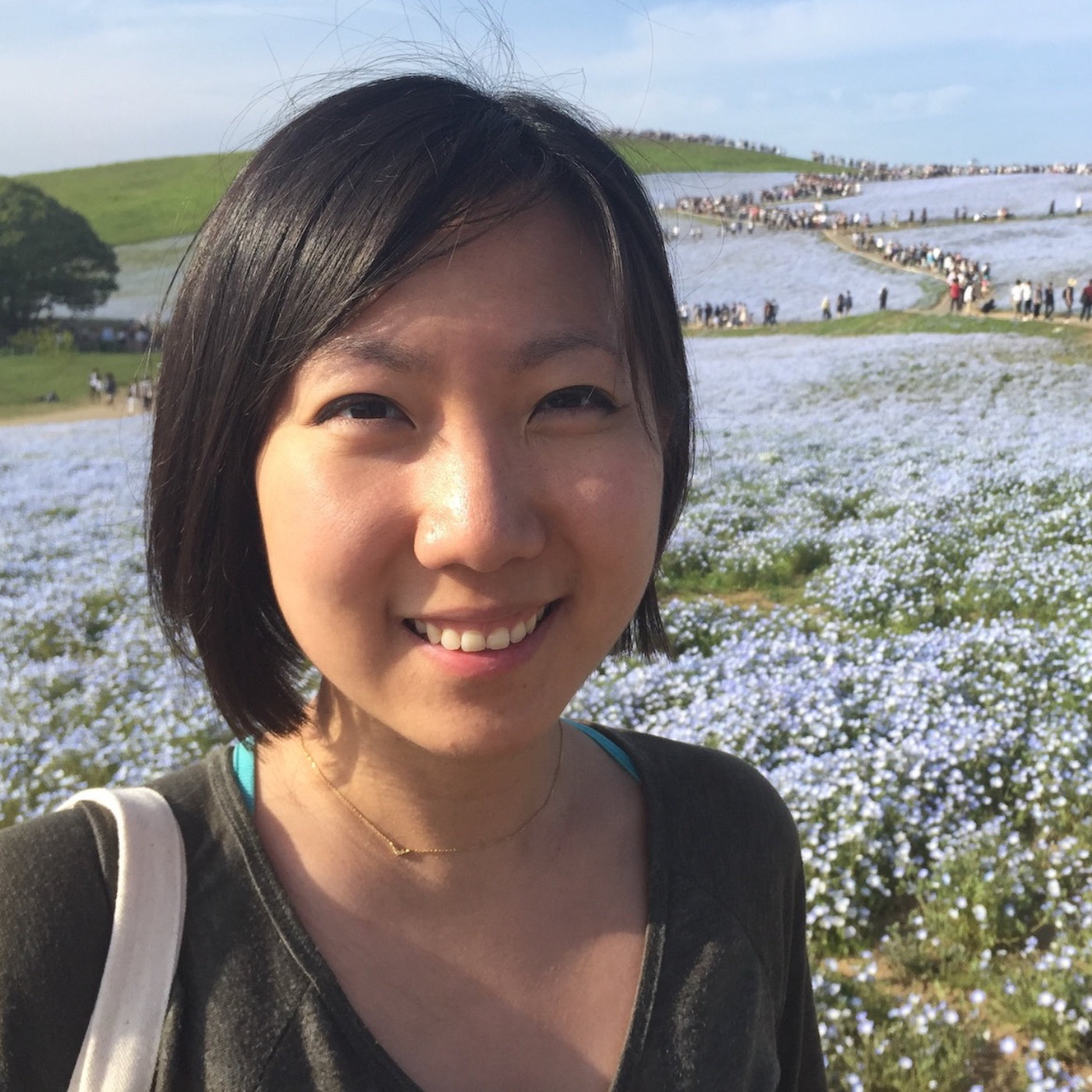
Angela Liu
Continue reading
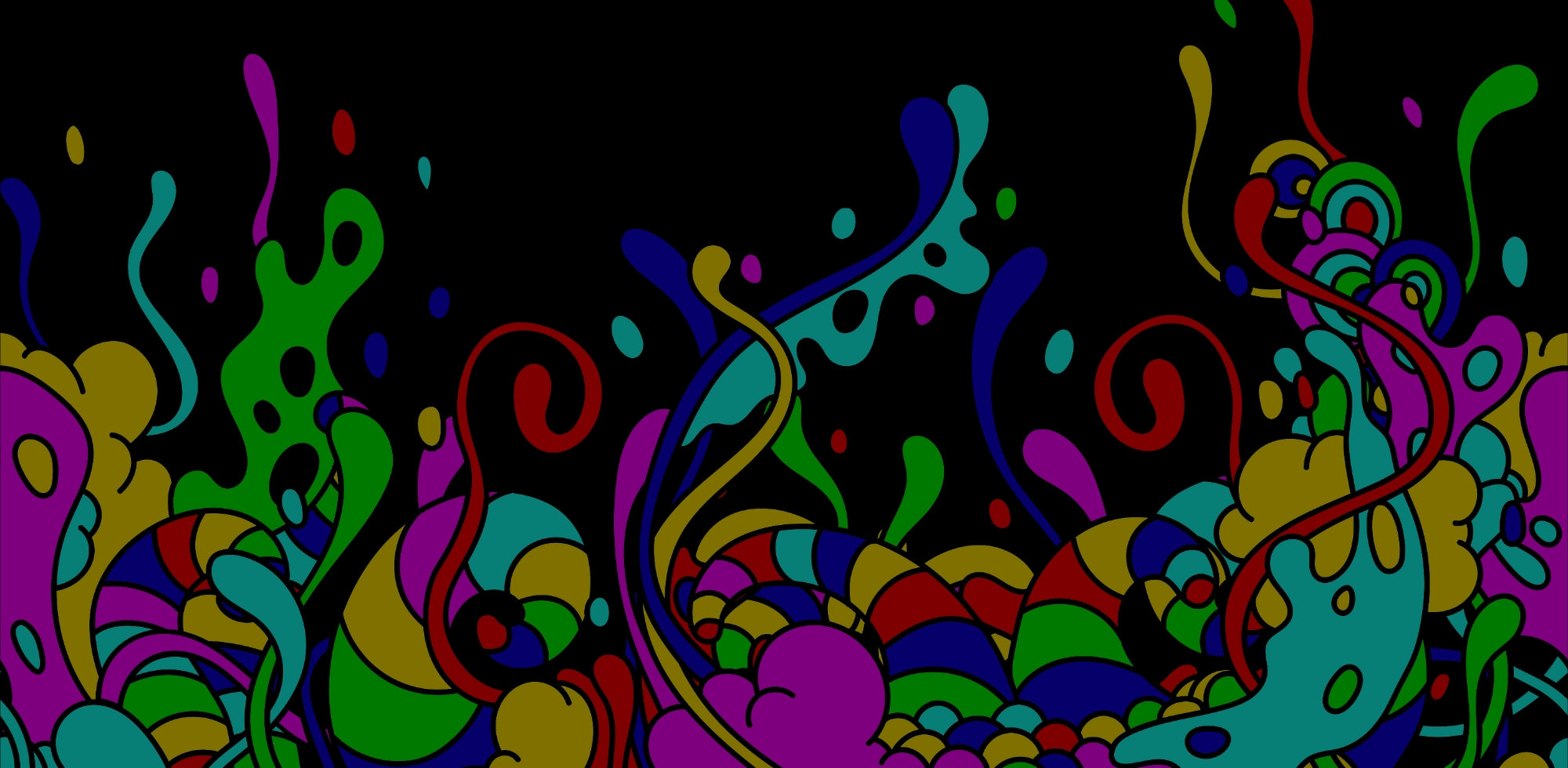
Get Issue Updates
Promotions, new products and sales. Directly to your inbox.


